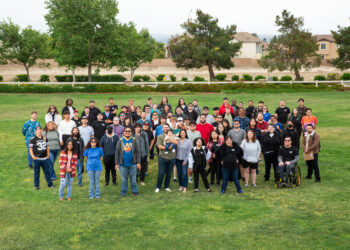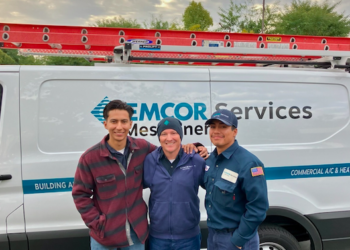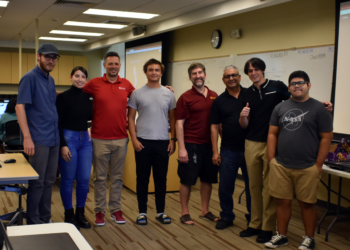Virtually Unstoppable: CTE Resource Sharing Goes Remote
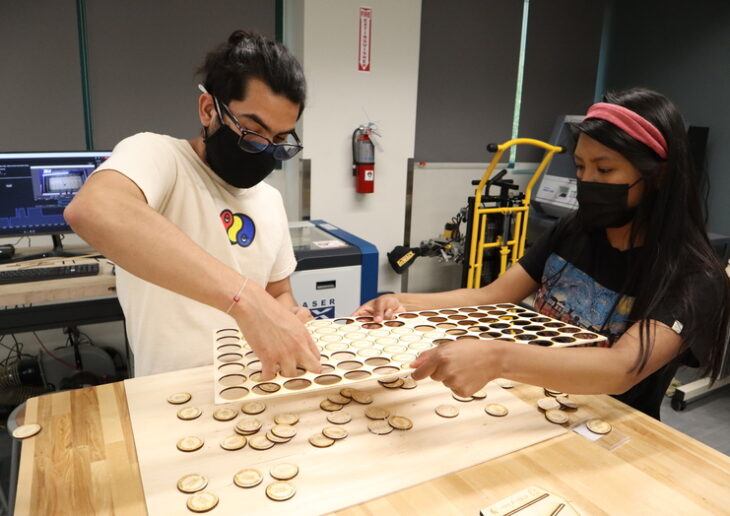
When it comes to finding silver linings in the pall of the pandemic, a recent Forbes article points to the proliferation of new connectivity solutions.
The flurry of virtual workshops and training sessions, the author suggests, has become the great equalizer for businesses worldwide. Online events allow more people to participate while eliminating travel costs and promoting participation. It’s changing the way that professionals connect to one another, and this April, the IEDRC Counselor Conclave became part of the revolution.
The first-ever virtual Conclave convened on April 21, linking more than 300 participants from 70+ organizations. Thanks in part to the convenience and flexibility of the platform, the event marked the most successful Conclave yet.
“We had 200 attend last year when the event was in-person, and that had been the largest,” beams Consortium Chair Julie Pehkonen.
What was originally intended as a stopgap measure for social distancing times has evolved into a bright idea for the future. In fact, according to a post-event poll, nearly two in three participants would prefer a virtual Conclave going forward.
“The energy, the presenters and hosts were charismatic, which made it feel like I was at an actual event,” effuses one participant in the feedback form. Adds another, “It was very convenient being held virtually.”
The power-packed day included dynamic keynote speakers ruminating on topics like CTE counseling and guided pathways. A presentation on the latest regional job recovery and most in-demand skills was followed by a variety of breakout sessions focusing on both community college and K-12 CTE pathways.
Major themes included promoting equity and breaking down barriers to education with innovation and out-of-the-box options. Presenters came from across the K-14 spectrum, bringing a wide variety of info, tools and resources to the table.
Best of all, thanks to the online nature of the event, sessions were recorded and posted to the web along with related resources for stakeholders and colleagues to engage.
“I was so happy I was able to participate this year,” says one counselor. “I love that all the PowerPoints, links, etc., that were shared in the sessions are available to us to use later.”
According to presenter Susanne Mata, Regional Director of Employer Engagement, ICT and Digital Media, the event was a hit.
“We heard nothing but positive feedback during our session regarding the quality of the Counselor Conclave,” says the director. “Attendees felt that it was a very well-organized virtual conference option.”
Mata helped present the “CTE 101 for New Community College Counselors” breakout session, in which she shared the 411 on career ed and highlighted Strong Workforce resources. For the passionate educator, it’s all about providing the essential info that will help counselors increase support for the region’s trailblazing learners.
“There are many CTE offerings that provide students with the skills and knowledge necessary to succeed in high-demand, high-wage career pathways offered at our community colleges,” says Mata, who was inspired by the opportunity to lead a session with fellow talent and make rich connections with regional advisors.
“We emphasized that we can be a first point of contact for counselors,” says the sector director.
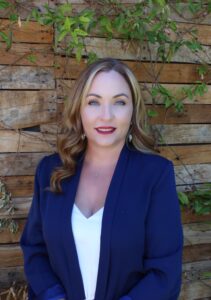
For fellow presenter Jessica Swift, K-12 Pathway Coordinator and Curriculum Specialist, making those connections and continuing to educate all stakeholders on the power of CTE is key.
“I believe that bridging the gap between secondary and post-secondary education is a vital area of growth in our CTE students’ journey,” reflects the coordinator. Since counselors play a crucial part in student success, she says, “The more information and training we can provide our counselors, the better.”
Swift helped to present “Understanding CTE for New K-12 Counselors.” Her session was so impactful that one school district requested that the presenters hold a repeat info session in the fall. For Swift, it’s an honor to keep spreading the word, and she’s thankful to the Conclave for providing opportunities to network and collaborate.
“It definitely opened the line of communication and gave counselors a place to go to learn,” concludes the coordinator.
Another Conclave highlight was the “Makerspaces Innovate Around the Region” presentation, showcasing how the area’s makerspaces are revolutionizing learning with real-world CTE. The session provided a history of the makerspace project, beginning at four community colleges with the CCC Maker grant and then expanding with Strong Workforce support to include 10 out of the region’s 12 colleges.
“Innovation is a key component to economic growth and recovery,” says Lisa Kiplinger-Kennedy, Regional Director of Business & Entrepreneurship. “Community colleges are well-positioned to offer transformative education to encourage creativity, design thinking and invention through entrepreneurial courses, makerspaces and innovation centers.”
Participants got the low-down on some of the fantastic events open to K-14 students and community members, including the virtual Maker to Market workshop series, which helps entrepreneurs sell their creations. Also in the works is a nine-month professional development workshop series for makerspace faculty, with spots for 36 participants. In particular, the iMAKE Innovation Center at Moreno Valley College is hosting free online tutorials, workshops, tournaments and “hackathons” for the K-12 community in the region and beyond.
According to the director, makerspaces are hubs of creativity, skill-sharing and hands-on learning. Says Kiplinger-Kennedy: “Our regional makerspaces can reinvent learning across all disciplines at our local campuses, which benefits not only our students but also our communities.”
For co-presenter Jason Kennedy, Makerspace Project Supervisor at Moreno Valley College, what makes the iMAKE Center so impactful is its accessibility. “All of our workshops and events are free to kids, teachers, college students and even community members.”
It’s an undeniably unique community resource, and as restrictions lift, in-person events are expected to resume at the 4,000-square-foot makerspace. With a variety of 3D and vinyl printers, laser cutters, VR and gaming equipment, 52-seat classroom and so much more, the center is just one example of the rich assets available to students of all ages.
“The interest in sharing makerspace resources is most definitely there,” says co-presenter Hal Edghill, specialist at Mt. San Jacinto College’s Eagle MakerSpace. He was thrilled to showcase the K-14 possibilities at his center and hopes that counselors will connect with the makerspace to bolster students’ CTE aspirations.
“We just have to wait out pandemic restrictions right now,” says Edghill. “I’m patient. I still expect great things to happen.”
Challenges aside, the event lit a spark for counselors, serving as a mid-pandemic reminder of the positive power of their work. Ariana Ordonez, School Counselor at Come Back Kids Charter, says she came away from the day fired up to keep helping students explore CTE pathways.
“The event was inspirational and motivational,” says Ordonez. “It’s great to see other school districts implementing such powerful student programs.
“I look forward to next year’s Conclave.”
Sources:
11 Silver Linings of the Pandemic That Will Inspire Business Leaders
